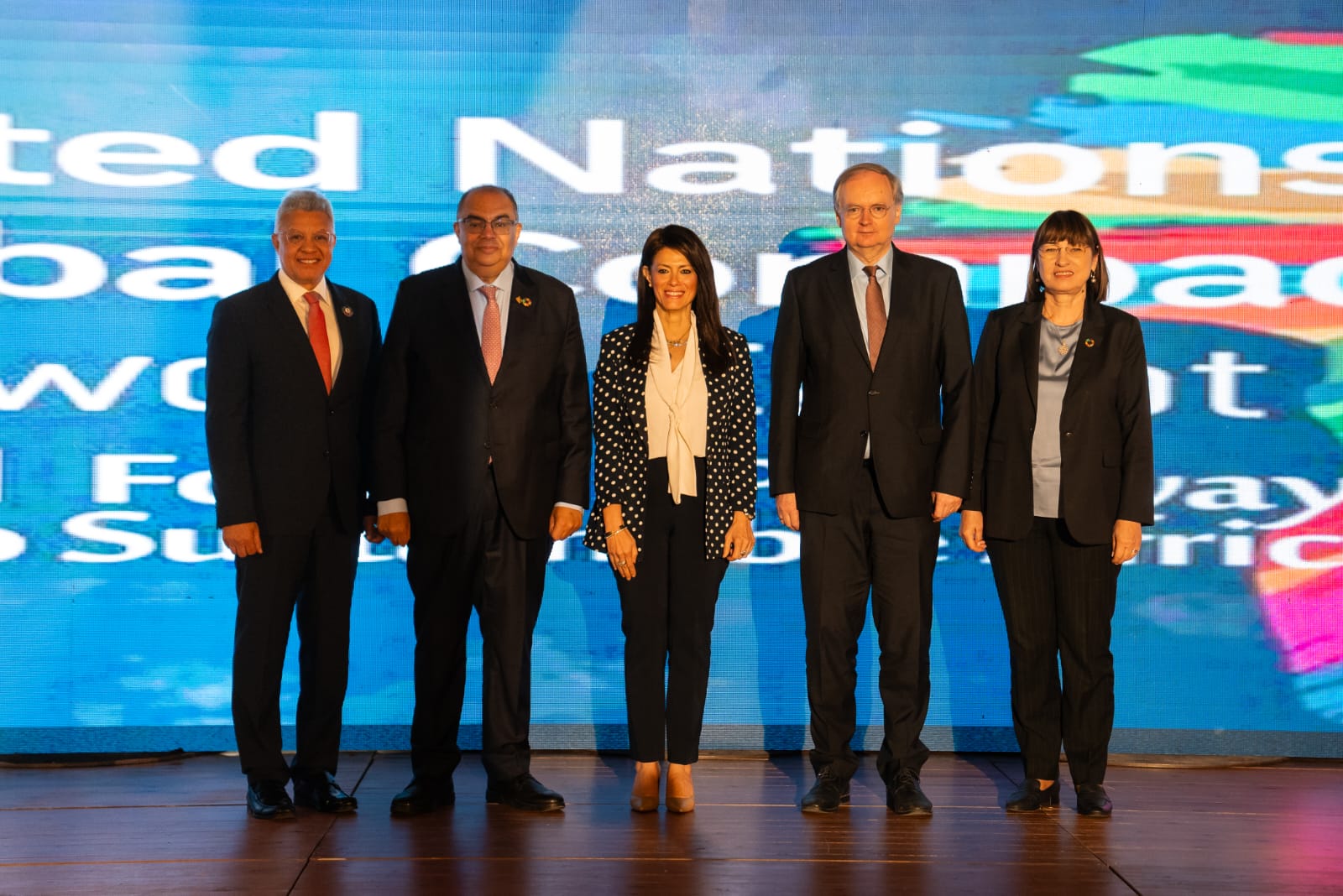Highlights from the First UN Global Compact Forum: «Forward Faster» Initiative to Boost Private Sector Sustainability Efforts
Font size
The first edition of the United Nations Global Compact Annual Forum has successfully concluded with several significant recommendations aimed at bolstering the private sector’s role in sustainable development. Organized by the United Nations Global Compact Network Egypt (UNGCNE), the forum was a resounding success culminating in the closing session with heartfelt thanks to the sponsors, organizers, and private sector partners whose contributions ensured the forum’s success.
Key among the recommendations was the launch of the “Forward Faster” initiative, designed to support the private sector’s sustainability efforts by focusing on five critical areas that can accelerate progress towards all Sustainable Development Goals (SDGs) by 2030. These areas include gender equality, climate action, wages and living standards, water resilience, and finance and investment.
During the event, Mrs. Walaa El-Husseiny, Executive Director of UN-GCNE, highlighted the key challenges facing the private sector’s sustainability efforts in Egypt as the need for greater awareness and understanding of environmental efforts and the mitigation of negative environmental impacts. She stated that many companies lack sufficient knowledge about the organizational processes and costs involved in verifying environmental measures and their importance which underscores the need for enhanced education and awareness programs to bridge this knowledge gap and support companies in their sustainability initiatives.
In this context, the UNGCNE through its “Forward Faster” initiative, will provide support in three key areas: raising awareness and providing training courses, building capacities and proposing policies, and offering analytical and practical tools to its private sector members. This support aims to expedite achieving the SDGs in the targeted areas. Companies interested in joining the initiative can register on the United Nations Global Compact website and commit to submitting an annual report detailing their achievements in the selected area, thereby contributing to the accelerated realization of the SDGs.
Among the forum’s valuable recommendations was the emphasis on the importance of integrating green communities and sustainable building practices into urban planning to create more resilient and sustainable urban environments. Despite the challenges, participants acknowledged the numerous opportunities for investment in green hydrogen while strongly endorsing the concept of “fair finance,” which ensures that sustainability efforts are equitable and inclusive, particularly in developing areas. Additionally, the forum urged the necessity of collaboration between governments and the private sector to provide essential funding and support for small and medium-sized enterprises to adopt sustainable technologies.
In this regard, Ayman Ismail, Chairman of the (UNGCNE), stated: “The forum succeeded in highlighting the challenges and requirements necessary to advance sustainable development and activate the role of the private sector in this regard. Through various discussions, the need to address the legislative and regulatory aspects of different issues emerged to create a conducive environment for more private sector investments in support of the SDGs. Moving forward, the UNGCNE will focus on key objectives, conducting specialized workshops to develop policy proposals that stimulate the private sector and support sustainable development.”
Commenting on the importance of innovation and mobilizing efforts to accelerate the progress of SDGs, Mrs. Tolulope Lewis-Tamoka, UNGC Chief Intergovernmental Affairs & Africa stated: “To achieve the SDGs, we urgently need creative leaders capable of managing change. At the moment, only 15% of the SDGs are on track to be achieved by 2030. This stark statistic calls for increased ambition and proactive collaborative efforts from all sectors of society.”
Furthermore, Dr. Ahmed Shalaby, President and CEO of Tatweer Misr, emphasized the private sector’s critical role in driving green transformation and achieving the three dimensions of ESG sustainability, which include environmental practices, social responsibility, and corporate governance. He also added that Tatweer Misr, since its inception in the Egyptian market, has adopted the concept of sustainability as a major component of its vision and a fundamental pillar of its practices.
Focusing on fostering private sector investment in sustainable initiatives, Dr. Karim Morsy, Advisor to the Minister of Environment for the Private Sector, said: “The private sector is a cornerstone in achieving the SDGs and developing resilient, inclusive, and eco-friendly urban environments. Its innovations create pathways to a better future, and its investments are the driving force behind development, particularly through funding clean energy projects and supporting the green economy.”
Expressing her enthusiasm for participating in organizing this distinguished forum, Lamia Kamel, former Assistant Minister of Tourism and Antiquities for Promotion, Founder of the Narrative PR Summit and the Managing Director of CC Plus, a full-fledged multi-disciplinary communications and PR firm, stated, “We are honored to be part of organizing this significant forum that brings sustainability to the forefront. The future undeniably hinges on the private sector’s role in achieving the SDGs. As a crucial partner in executing Egypt’s sustainability plans and realizing Egypt’s Vision 2030, the private sector’s contribution is indisputably vital.”
The forum, themed ” Pathways to Sustainable Africa,” gathered thought leaders, experts, and officials from both the public and private sectors to tackle the most pressing issues of climate change and sustainable development. It also addressed the key challenges hindering the private sector’s efforts in driving the SDGs forward.











